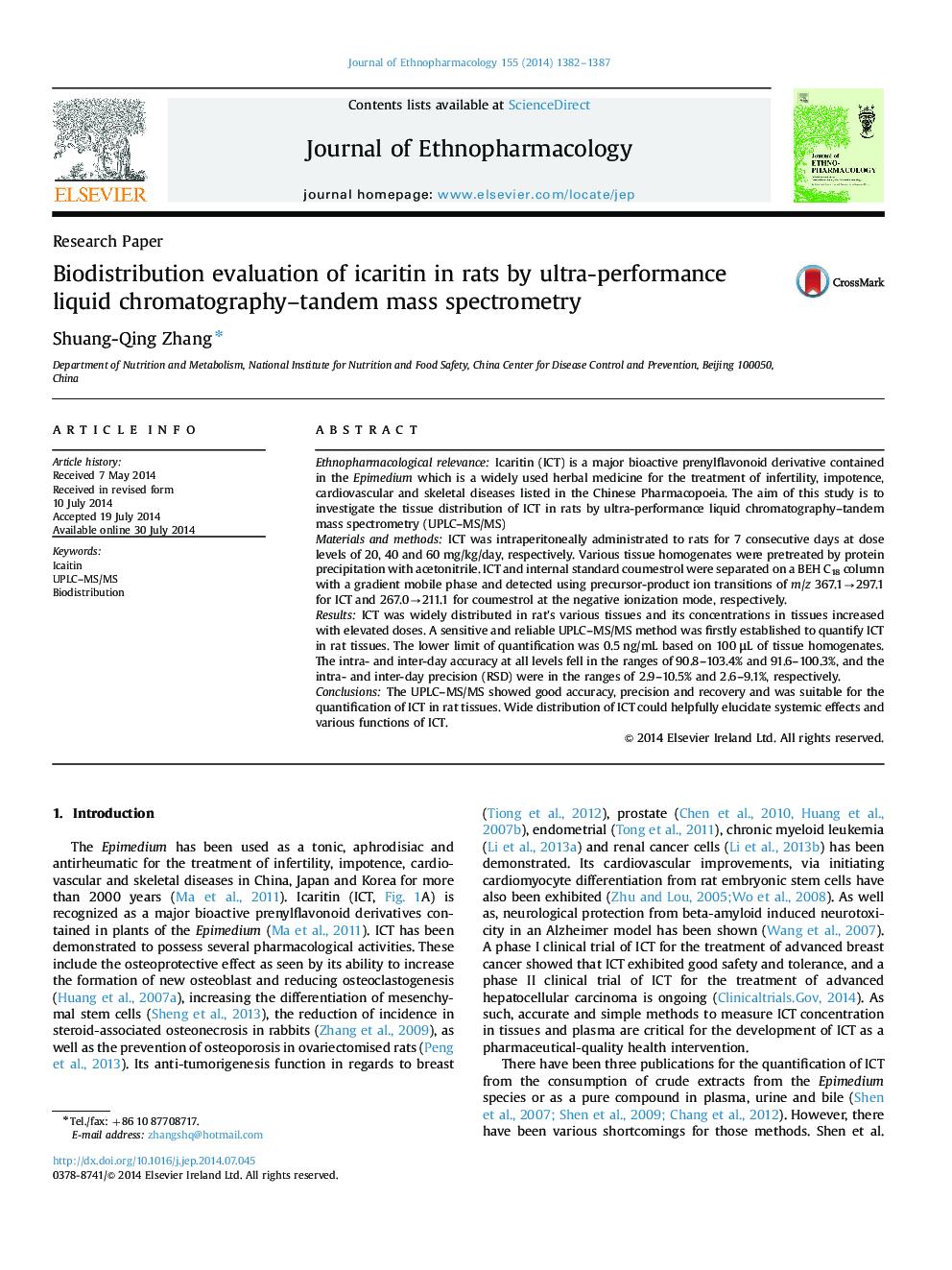| Article ID | Journal | Published Year | Pages | File Type |
|---|---|---|---|---|
| 5836160 | Journal of Ethnopharmacology | 2014 | 6 Pages |
Ethnopharmacological relevanceIcaritin (ICT) is a major bioactive prenylflavonoid derivative contained in the Epimedium which is a widely used herbal medicine for the treatment of infertility, impotence, cardiovascular and skeletal diseases listed in the Chinese Pharmacopoeia. The aim of this study is to investigate the tissue distribution of ICT in rats by ultra-performance liquid chromatography-tandem mass spectrometry (UPLC-MS/MS)Materials and methodsICT was intraperitoneally administrated to rats for 7 consecutive days at dose levels of 20, 40 and 60 mg/kg/day, respectively. Various tissue homogenates were pretreated by protein precipitation with acetonitrile. ICT and internal standard coumestrol were separated on a BEH C18 column with a gradient mobile phase and detected using precursor-product ion transitions of m/z 367.1â297.1 for ICT and 267.0â211.1 for coumestrol at the negative ionization mode, respectively.ResultsICT was widely distributed in rat׳s various tissues and its concentrations in tissues increased with elevated doses. A sensitive and reliable UPLC-MS/MS method was firstly established to quantify ICT in rat tissues. The lower limit of quantification was 0.5 ng/mL based on 100 μL of tissue homogenates. The intra- and inter-day accuracy at all levels fell in the ranges of 90.8-103.4% and 91.6-100.3%, and the intra- and inter-day precision (RSD) were in the ranges of 2.9-10.5% and 2.6-9.1%, respectively.ConclusionsThe UPLC-MS/MS showed good accuracy, precision and recovery and was suitable for the quantification of ICT in rat tissues. Wide distribution of ICT could helpfully elucidate systemic effects and various functions of ICT.
Graphical abstractDownload high-res image (52KB)Download full-size image
